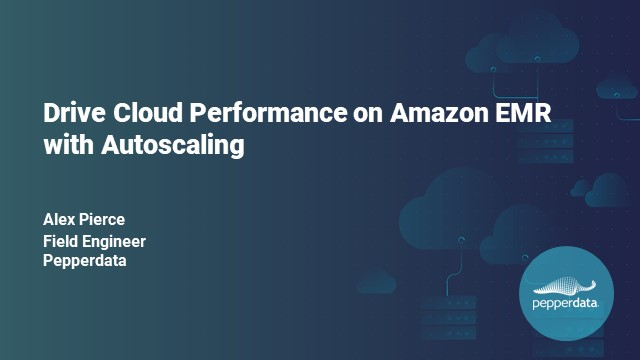Autoscaling automatically increases or decreases the computational resources delivered to a cloud workload based on need. This typically means adding or reducing active servers (instances) that are leveraged against your workload within an infrastructure. The promise of autoscaling is that workloads receive exactly the cloud computational resources they require at any given time, and you only pay for the server resources you need, when you need them.
Autoscaling enables applications to perform their best when demand changes, but depending on the application, performance varies. While some applications are constant and predictable, others are bound by CPU or memory, or “spiky” in nature. Autoscaling automatically addresses these variables to ensure optimal application performance. Amazon EMR, Azure HDInsight, and Google Cloud Dataproc all provide autoscaling for big data and Hadoop with a different approach.
While autoscaling provides the elasticity that customers require for their big data workloads, it can lead to exorbitant runaway waste and cost and management complexity. Estimating the right number of cluster nodes for a workload is difficult; user-initiated cluster scaling requires manual intervention, and mistakes are often costly and disruptive.
Join Pepperdata Field Engineer Alex Pierce for this discussion about operational challenges associated with maintaining optimal big data performance in the cloud, what milestones to set, and recommendations on how to create a successful cloud migration framework. Learn the following:
– Autoscaling types
– Autoscaling strengths and weaknesses
– When to use autoscaling and what autoscaling does well
– Is traditional autoscaling limiting your success?
– What is optimized cloud autoscaling?
– What does cloud autoscaling success look like?
 Presented by
Presented by